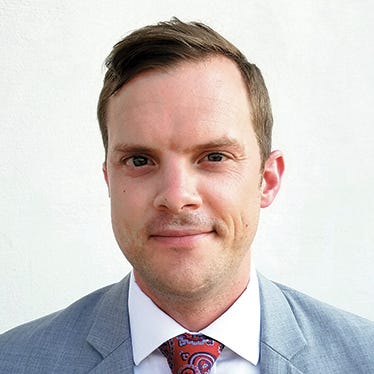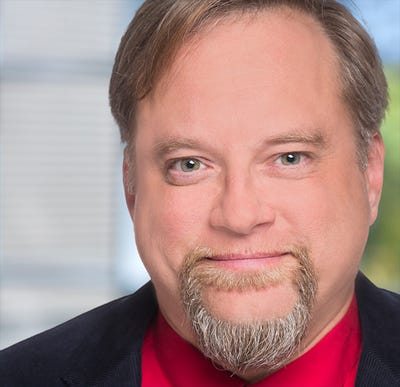Fidelity Launches an HSA for Advisors, but Will They Care?Fidelity Launches an HSA for Advisors, but Will They Care?
Available to intermediaries, advisors have full discretionary oversight, but questions remain regarding demand.

Fidelity Investments announced last week it is offering “full-service” health savings accounts through its Wealthscape advisor technology platform. The HSAs will be available to financial intermediaries, like broker/dealers, bankers and registered investment advisors, who are working with the firm. The company’s bullish stance on HSAs, which fit neatly into its retirement business, comes despite a lack of company or industry data indicating significant advisor demand.
For HSAs offered by the firm, Fidelity acts as custodian and provides brokerage services, “allowing advisors to handle all aspects of clients’ HSAs, including professional investment management and operational oversight,” according to the firm. The financial services company has a self-reported $5.4 billion in HSA assets under administration, as of November 2019 (the vast bulk of it being through its Workplace unit), just a tiny sliver of the firm’s overall assets under administration of $7.8 trillion, as of September 2019.
Inci Kaya, lead analyst for health insurance at research firm Aite Group, said HSA assets are not merely a blip in terms of Fidelity's assets, but the vehicle's overall footprint compared with the universe of investing and health insurance assets is tiny by comparison, too.
"Compared to the assets in 401(k) accounts, annuities, etc., the assets in HSAs are so small you cannot even see it when plotting them on a chart," she said. "However, that means there is still plenty of unexplored headroom for this among employers and advisors."
For its part, Fidelity cited “tremendous growth with our HSAs for employer clients and individual investors,” according to a statement by Begonya Klumb, head of HSA at Fidelity Health Care Group. However, the firm isn’t publicly offering quantitative data on advisor demand, suggesting it is more of an anecdotal phenomenon, though Klumb said Fidelity had conducted some small informal surveys of advisors.
A small 2019 survey of 233 advisors conducted by another firm, HealthSavings Administrators, found that more than one in three advisors “do not fully understand how an HSA works.”
Typical health savings account holders treat the vehicle's funds as a savings account first with an investment option second. That treatment tends to split investors and advisors on how exactly to use funds and adds to confusion around planning and intent. What firms like HealthSavings Administrators and Fidelity don’t touch on is that advisor demand around HSAs depends in part on an advisor’s fee structure.
For advisors who charge on an hourly basis, like Rick Ferri, founder of Ferri Investment Solutions in Georgetown, Texas, HSAs are valuable accounts that are worth advising on. He structures advice on HSAs from a long-term perspective to capitalize on the tax advantages of the account. “I don’t care if you have a $3 million HSA or a $3,000 account, it doesn’t make any difference to me,” he said. For advisors who charge on an AUM basis, however, that may not be the case.
“This is just a pain in the butt kind of account for an advisor” who charges on an AUM basis, he said. “How the heck are you going to do AUM with a $3,500 account?”
That fee structure just doesn’t make sense for advisors, agreed Aaron Benway, a financial planner at AB Financial Planning and Investments, in McLean, Va., and co-founder of the HSA Coach app. “For $50 or $100—and that is sort of a gross number, not a net number—are you going to slow the conversation down?” he asked. In turn, he also tends to advise on an hourly basis.
Fidelity and other firms are getting into the HSA business not because it is a large source of assets, but because it is a “golden entry point” to talking about the intersection of health and wealth, said Benway. The dollar amounts don't add up, from an advice standpoint, but financial services firms want to be "seen as current, and therefore relevant." In other words, an offering like Fidelity's is a marketing device.
Aite Group's Kaya said offering HSAs is more than that, however. "If my client comes to me, I want to be able to offer it more as a customer service feature than a money maker," she said.
Even so, Kaya said the field for financial wellness, which encompasses retirement and health-related expense planning, is still a growing field with a fragmented set of players. Fidelity, Cigna, Aetna, Bank of America Merrill Lynch, Chase, MetLife, Wells Fargo, Blue Cross Blue Shield and USAA are among those that come up most frequently. She said Fidelity and Empower’s foray into HSA land has brought visibility and legitimacy to the product in the world of retirement plan advisors, broker/dealers and custodians, prompting them to take a closer look.
“Advisors in the wealth management industry realize that it's about outcomes and increasingly, culturally, we're talking about health and retirement and quality of life type issues,” Benway said. “You can’t not talk about health nowadays. I mean, Apple talks about it all the time.”
About the Authors
You May Also Like









